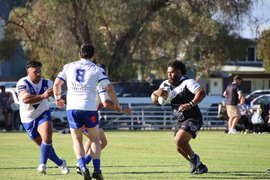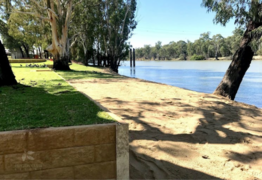The human cost of overwork
Kimberly Grabham
19 May 2025, 2:00 AM

Working Overtime Could Be Changing Your Brain - And Not For The Better
Countless Aussies slug through 50+ hour work weeks, believing their dedication will pay off in the long run. But new research suggests this workplace marathon might be physically reshaping our brains – and not necessarily to our advantage.
The Brain-Changing Effects of Overtime
A groundbreaking study published in Occupational and Environmental Medicine has revealed that people who work more than 52 hours weekly show measurable changes in brain structure compared to those with more reasonable schedules.
Researchers examining healthcare workers in South Korea found that chronic overworkers developed increased brain volume in regions controlling executive function and emotional regulation.
While this might sound positive, scientists warn these changes could actually lead to cognitive decline and emotional problems over time.
"What we're seeing is essentially the brain's stress response," explains neuropsychologist Dr. Amelia Zhang from the University of Sydney, who wasn't involved in the study.
"The brain is adapting to constant cognitive demands, but this adaptation appears unsustainable long-term."
When is Too Much Work Too Much?
South Korean labour laws specifically identify 52 hours as the danger threshold where health risks substantially increase. Other research has suggested 55 hours as a critical limit.
For comparison, Australian workplace regulations generally restrict standard work weeks to 38 hours, though many industries and individual contracts allow for considerable overtime.
"Many professionals, especially in healthcare, finance, and law, regularly exceed 50 hours without recognising the potential harm," says workplace health advocate Janine Crawford. "There's this persistent myth that working longer means working better."
The Human Cost of Overwork
Previous studies have already linked excessive working hours with anxiety, depression, sleep disturbances, and impaired decision-making.
This new research adds concerning evidence that these effects may have physical manifestations in the brain itself.
The cognitive impairment associated with chronic overwork creates a painful irony for many professionals: the extra hours they dedicate to excellence may ultimately compromise the very mental sharpness they rely on.
Breaking the Cycle
Workplace health experts recommend:
- Setting firm boundaries between work and personal time
- Taking proper lunch breaks away from your desk
- Using all entitled annual leave
- Discussing reasonable workloads with management
- Prioritising quality of work over sheer hours
"Our hunter-gatherer ancestors only worked about 15 hours weekly," Crawford notes.
"The modern 50+ hour work week isn't just unhealthy – it's historically abnormal."
As this research suggests, working smarter rather than longer might be the true key to professional success – and brain health.
NEWS
SPORT
RURAL
COMMUNITY
VISIT HAY
VISIT BALRANALD
VISIT OUTBACK NSW

























